Aurora Public Schools introduces new partnership to combat 'mental health crisis'

If you have an immediate mental health crisis, please call Colorado Crisis Services at 1-844-493-8255 or text TALK to 38255. Or call the National Suicide Prevention Lifeline at 1-800-273-8255. You can also chat with the Lifeline.
AURORA, Colo. — A “youth mental health emergency.” A “pediatric mental health crisis.” “A lot of children are struggling right now.”
All sentiments used to describe the current state of Colorado’s youth and their mental health right now.
“Especially teenagers … with high levels of anxiety, high levels of depression. I'm seeing a lot of self harm. Seeing more young folks that are dealing with suicide ideation, definitely, you know, lots of mental health issues,” said Joy Ewing, a licensed marriage and family therapist located in Aurora.
Now private providers, community organizations and schools are working to find solutions and support systems.
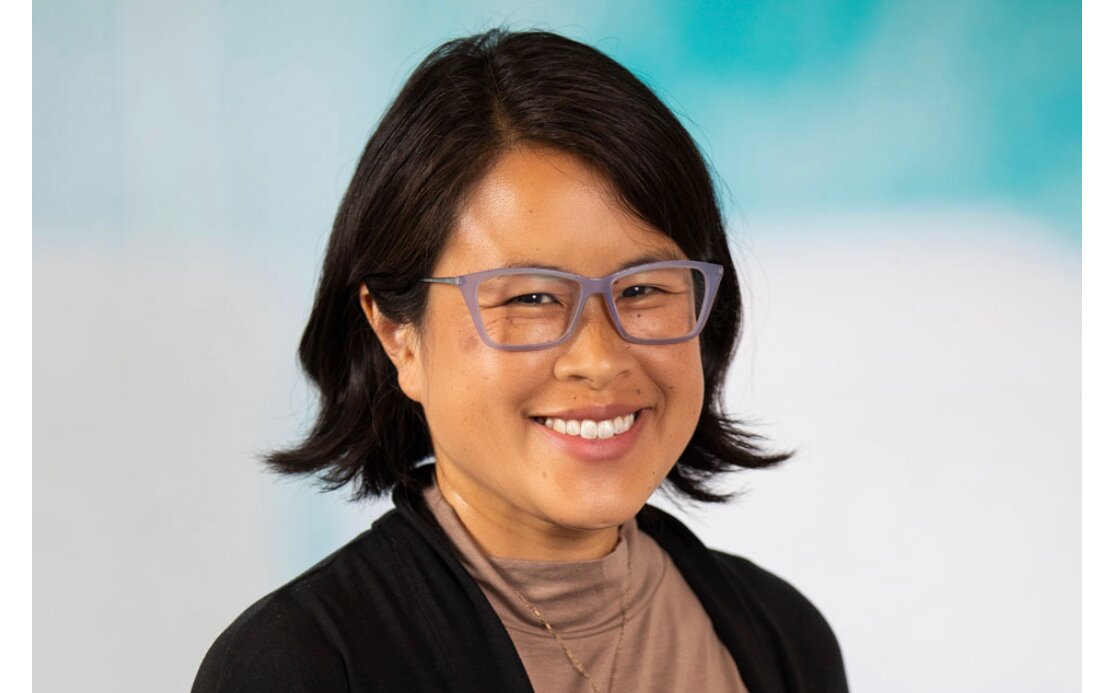
Last May, Children’s Hospital Colorado declared youth mental health in a state of emergency. In October, the hospital system held a virtual roundtable discussion where advocates detailed the frightening circumstances many are seeing. For Children’s Hospital Colorado's pediatric system, emergency visits for a mental health crisis were up 73% in October 2021 over the same time period two years prior.
Advocates also pointed out the leading cause of death for 10 to 24 year olds in Colorado is death by suicide.
While Children’s Hospital Colorado called on lawmakers and Governor Jared Polis to allocate significant funds to address the crisis, it also recently hired a Mental Health-in-Chief for the hospital system. As a child and adolescent psychiatrist, Dr. K. Ron-Li Liaw will lead efforts that will better support kids’ mental health.
Now Aurora Public Schools (APS) is trying a new partnership to help bolster support for teens who are clearly in desperate need of help.
Hazel Health
“I feel like we've seen a dramatic increase, especially, with the need for coping skills, for things like anxiety, anger, sadness, and also just those basic social, emotional skills we're seeing a need for,” said Alexandra Richardson, Aurora Hills seventh grade counselor. “And that's really where Hazel Health has come in to help support us to meet that need.”
APS introduced a new tool in January this year that will allow all 38,000-plus students to receive free mental health care. Hazel Health is an online resource that provides one intake session and then up to six free sessions–all virtually, allowing for students to get quick, responsive care to this “mental health crisis.
“We knew that our community partners that include Aurora Mental Health and HealthOne who have school-based therapists staffed in our buildings that their caseloads were filling up within months where it had taken, you know, half a year, almost the whole year for their caseloads to fill up,” said Kim Kaspar, APS mental health and counseling coordinator.
The mental health leaders who spoke to Rocky Mountain PBS said they consider themselves lucky to have a fairly robust mental health team at most schools. Elementary schools have at least one, while middle schools and high schools have a much larger staff keeping to the American School Counselor Association’s recommended ratio of one counselor for every 250 students.
As an example, Aurora Hills Middle School has three counselors tied to a certain grade, one lead counselor, a full-time psychologist, a full-time social worker, and a part-time psychologist, making up a team of seven for the 823 students, according to the latest count.
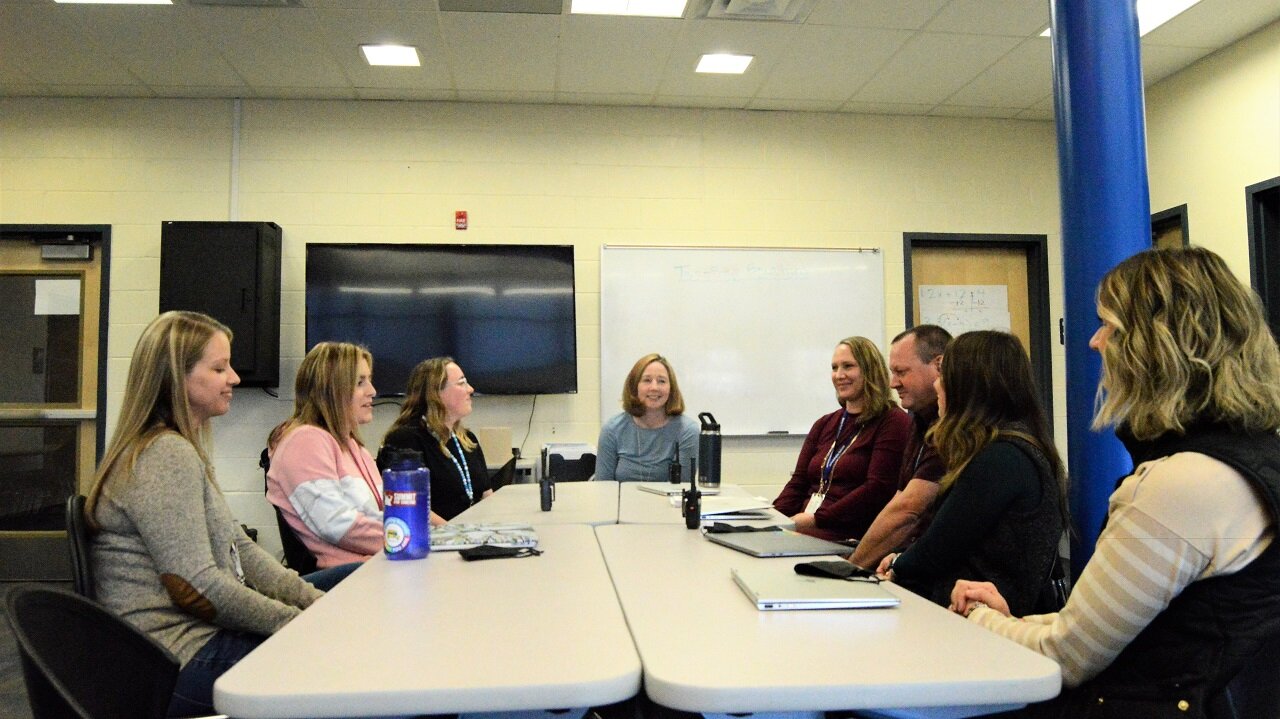
These numbers are largely thanks to a $35 million mill levy passed by Aurora voters in November 2018. That following summer, APS used some of that money to hire more than 100 new counselors. Currently, 277 mental health professionals work for the district: 87 school counselors, 56 school psychologists, 109 social workers and 25 special service providers. There is also a school-based therapist from the Aurora Mental Health Center or HealthOne available to students during the academic day.
Despite a better-than-recommended ratio of mental health professionals to students, schools in Aurora were overwhelmed with students in need of mental health support over the last two years. Too many names were filling up wait lists when challenges needed to be addressed immediately.
“When Hazel approached the district to say, ‘We're offering these services,’ we really felt like Hazel would be a good solution … to fit the immediate need,” said Kaspar.
Through the Elementary and Secondary School Emergency Relief Fund, APS funded its partnership with Hazel for one year. Counselors told Rocky Mountain PBS the turnaround from referral to a response back to parents or students is quick, often just a day later. So far, students are taking advantage. Kaspar said as of Feb. 9, the district sent 169 student referrals to Hazel since January and 53% came from middle schools.
Aurora Hills Middle School
When told that more than half of the referrals so far to Hazel Health came from middle schoolers, none of the eight counselors, psychologists or school leaders who spoke to Rocky Mountain PBS were surprised.
“It can fill this need for right now,” said Marcella Garcia, the school’s principal. She went on to explain Hazel Health’s other advantage is flexibility, offering online services from 7 a.m. to 5 p.m. “So if they felt comfortable at home or if they didn't feel comfortable at home, because sometimes the issue is at home. And so if they're online they can't really open up about that.”
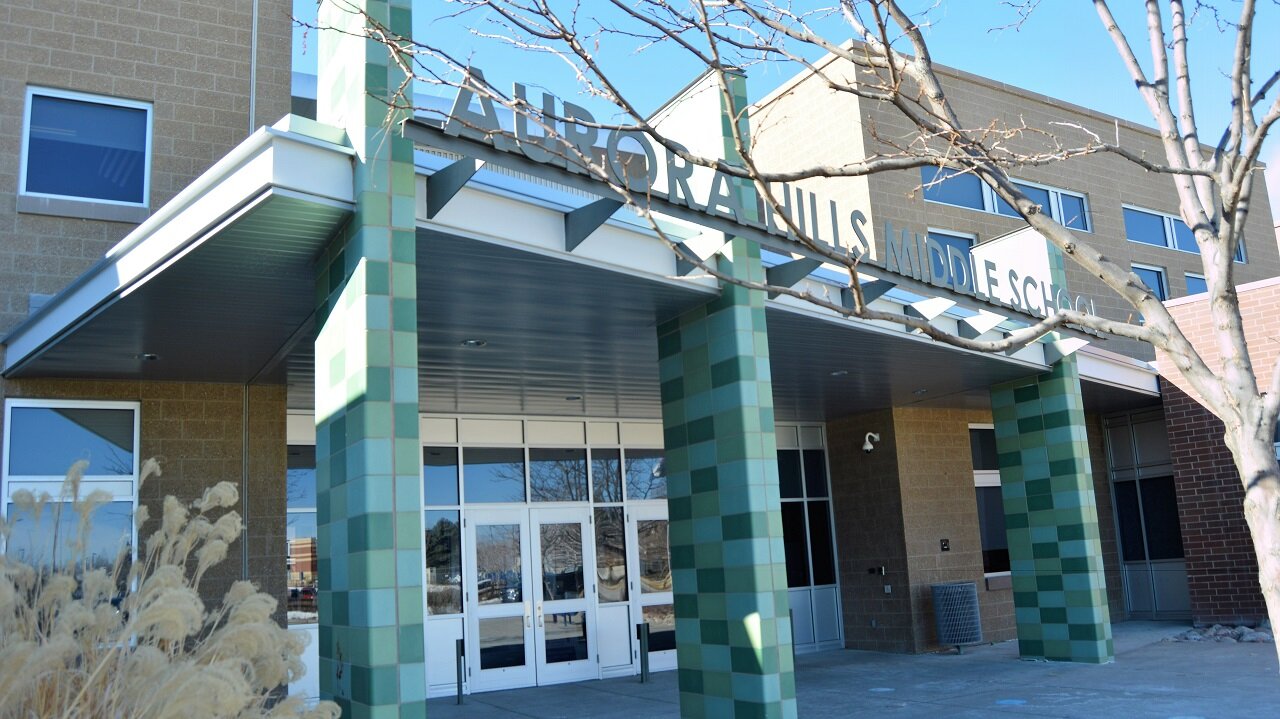
The halls of Aurora Hills feel much like they used to before the pandemic. Kids gathered in groups to walk from one class to the next, mask-free after the mandate was recently withdrawn. The leaders of the school are happy to see school-life return to some normality, but nothing can erase or diminish the hardship of the last two years.
“It's definitely just become a greater need with COVID how it's affected our families, our students, this population, any population across the U.S.,” said Andrea Thomas, the lead counselor at Aurora Hills, about mental health. “I've seen a greater need with social skills with family trauma, loss. It's just become a big need.”
Not only did students have to deal with loss and isolation, counselors said many got used to the flexibility with remote learning, so coming back to school full time was a challenge.
“A lot of students have had to come back and learn how to be in the school again, to be in the classroom, to sit for certain amount of periods of time, to follow directions,” said Katie Moore, the school’s full-time psychologist.
“It is a huge difference, like, where kids don't know how to interact with each other,” Garcia added. “Usually they're behind a screen for the last two years. And so now it’s, ‘I'm in person. And what does that look like about how I interact? But also about who I trust to help me with this?’”
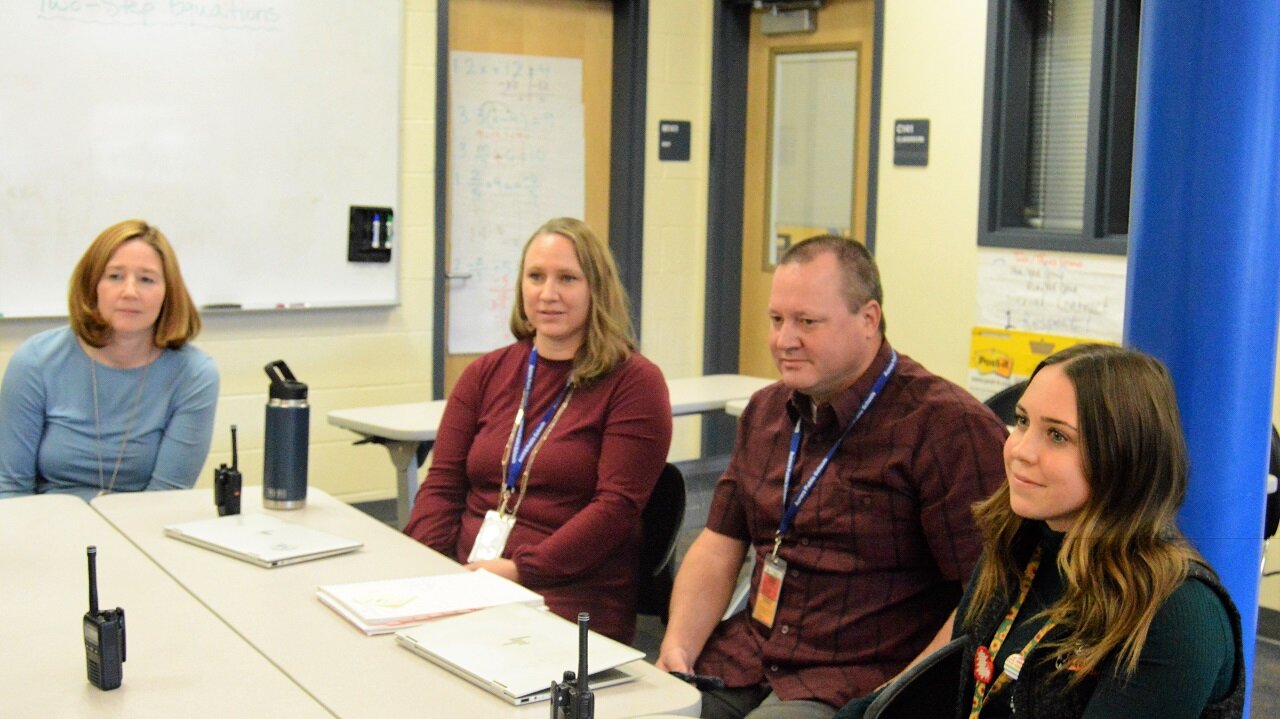
To address that particular need of trust, sixth grade counselor Corbin Roberts said their number one priority is to build relationships with kids.
“Talking with them one-on-one, meeting them where they're at, some of them actually prefer remote learning, some didn't depending on family, home life,” said Roberts. “So for us, I feel like it's really, trying to gain that trust that we are here for them.”
The other particular challenge middle schoolers faced during this pandemic was missing a key transitional period. Going from elementary school to middle school and then high school normally includes a lot of personal growth for each child.
“So this is middle school, such a significant year in development, right? We see huge differences between sixth and eighth grader even. And now we see the COVID impact of that,” said Agnieszka Palej-Ramirez, eighth grade counselor. “Identity development is huge within that, trying to find out who they are in the context of their social peers.”
There is at least one positive to remote learning, that Autumn Martens, the full-time social worker at the school, pointed out: counselors, teachers, psychologists were forced to find more ways to inform and communicate with parents and parents were forced to engage more with their child’s school life.
“I think we kind of have been taking more of a holistic approach to the mental health of servicing them while they're at here [school] and also making sure that they have those resources when they're at home,” said Martens.
This means treating the whole student, not just how they show up at school.
Diversity & mental health in Aurora
Demonstrating even more diversity than the city of Aurora, more than half of the 38,000 students in APS identify as Hispanic. Another nearly 18% identify as Black, while 13.4% identify as white.
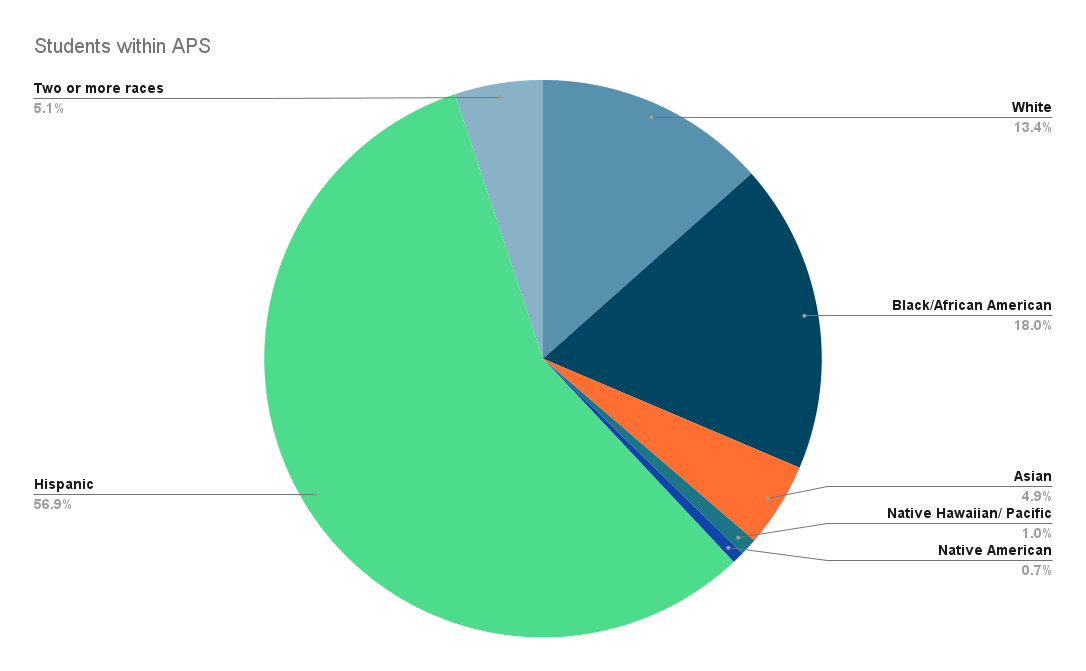
“Being a teenager is hard already. You're already trying to find yourself as a person and then, you know, add the layer of … if you come from a non-white cultural background that's hard to navigate,” said Ewing, the private counselor in Aurora. “LGBTQ+ teenagers too, they're really struggling with their own identity.”
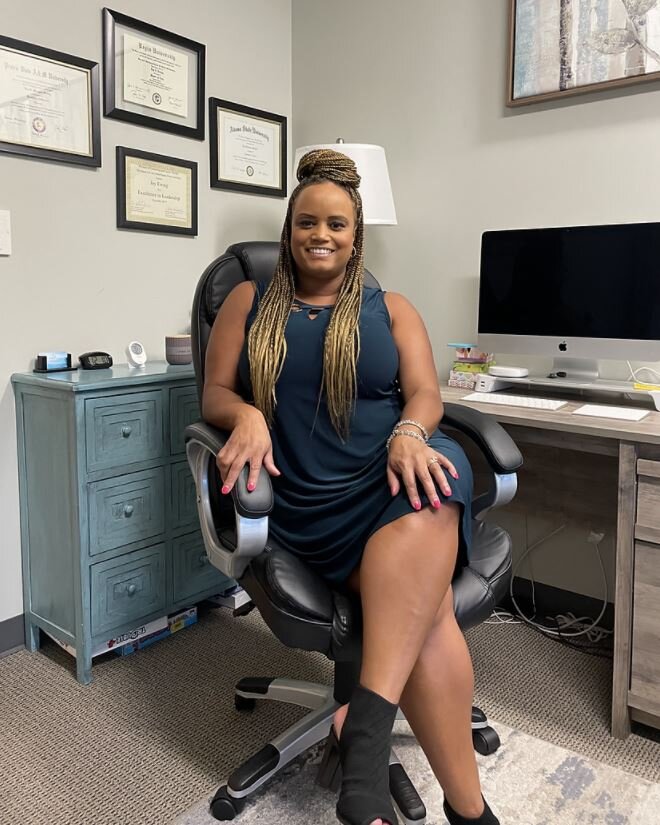
Ewing started her own practice in Aurora just as the pandemic began and knows there was a huge uptick in clients.
“On top of that during, you know, a lot of the racial tension that was happening in America, a lot of teenagers needing support, needing therapy with staying at home for school. So many changes happening all at once and trying to navigate that,” said Ewing.
These challenges all coming together at once manifested into this mental health crisis even more so for youth in marginalized communities. The Trevor Project’s 2021 National Survey on LGBTQ Youth Mental Health, which surveyed nearly 35,000 LGBTQ youth ages 13–24 across the United States, showed 42% of LGBTQ youth seriously considered attempting suicide in the past year, including more than half of transgender and nonbinary youth. And the percentage of LGBTQ youth of color who considered suicide was significantly higher than those who identified as white.
“Just really needing that support, needing safe places to be able to come and talk to someone that's not going to judge them that will openly support them, however they identify. And however they choose to come out or not come out or, you know, wherever they are on that journey when it comes to their sexual orientation or their gender,” explained Ewing.
She said most of her clients come to her specifically looking for that safe space because she is a person of color and say they are so relieved to find her.
“I feel like my clients they're saying things like, ‘Oh my gosh, I feel like I can just start from where I am. I don't have to educate you on all of the stuff that's happening and how it's affecting me, but I can just talk openly about these things,’” said Ewing referring to possible racism or microaggressions her clients of color faced. “Just having this safe space to be able to talk, to bring their full, authentic self and to be heard.”
At APS, the demographic data of its school-based mental health providers (counselors, psychologists and social workers) doesn’t reflect that of its students. Below are the breakdowns provided to Rocky Mountain PBS by APS.
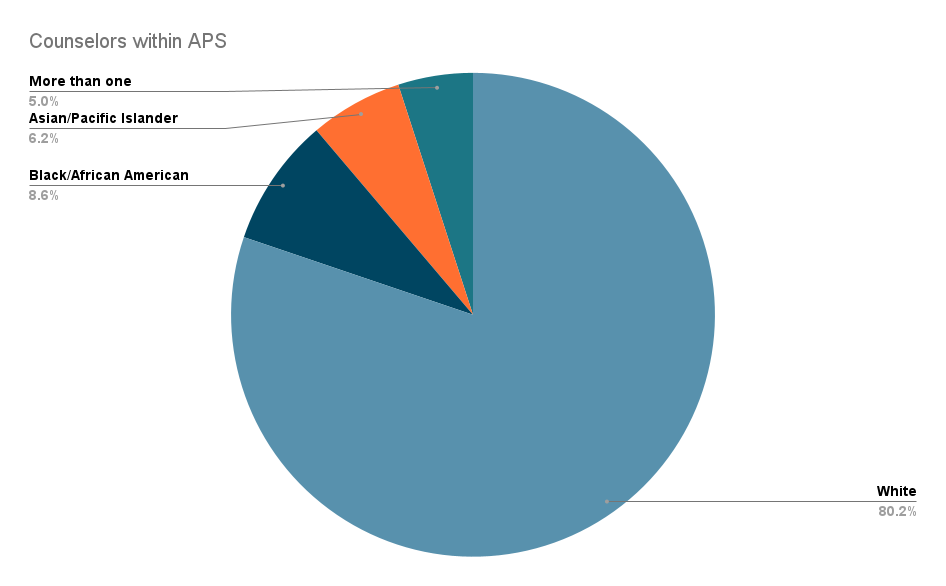
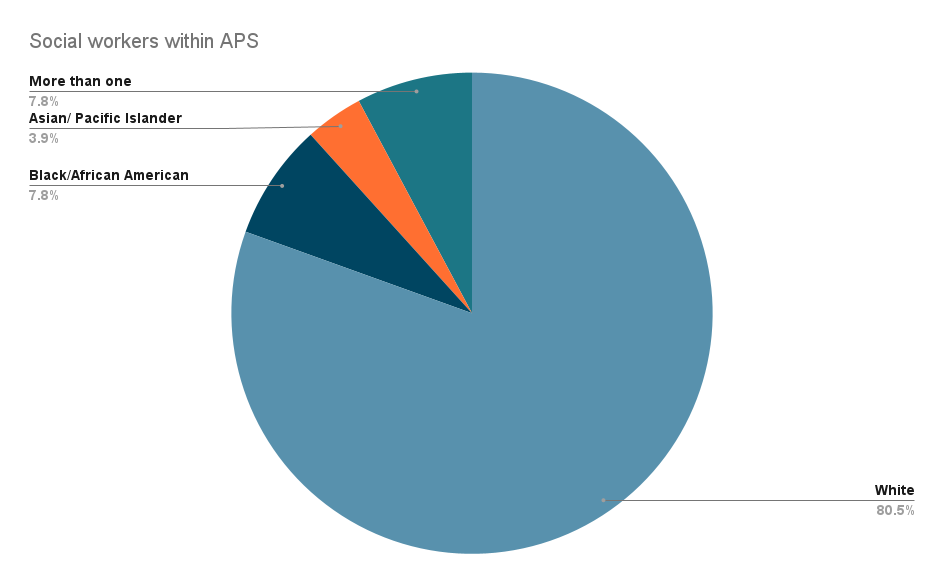
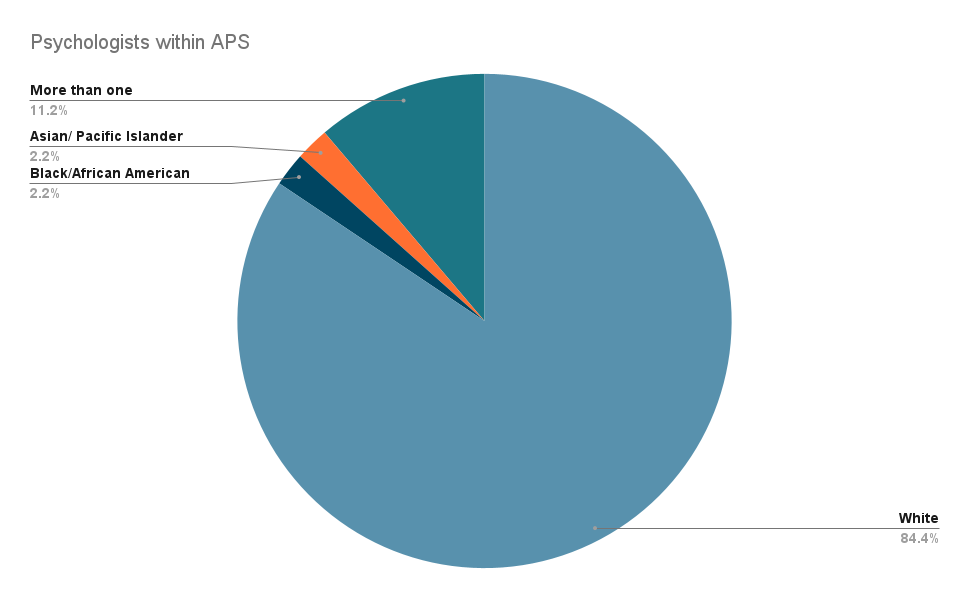
At Aurora Hills, all of the mental health professionals said they are aware they may not be able to understand what some of their students are going through based on their culture or color of their skin.
“We cannot talk about a child, right, without really truly knowing who they are in their background,” said Palej-Ramirez, the eighth grade counselor.
She went on to say she tries to relate to any student, especially middle schoolers, by finding some sort of common ground.
“I personally didn't start school in America until high school. So I can kind of relate to our CLDE (Culturally and Linguistically Diverse Education) students and going, ‘Man, I know how it is to have to be in CLDE and learning the language and learning academics,’” explained Palej-Ramirez.
To her point, more than 42% of APS students are second language learners, with 77.8% of them being Spanish-speakers.
[Related: La Cocina offers free mental health services for Colorado's Latinx community]
There are also other factors in students’ lives that may impact mental health. For example, 74.2% of APS students receive a free or reduced lunch. While the largest school district in the state, Denver Public Schools, has just 59.15% of its students eligible for free or reduced lunch.
All factors counselors may not be able to relate to.
“For me, I know that I look different than a lot of our students and I had a different upbringing,” explained Roberts, the sixth grade counselor. “So letting them kind of express who they are and being open to that and welcoming to that, learning from them really in a lot of ways, this is your world, you know, and I'm trying to understand the best I can.”
On a district level, Kaspar said they have a name and gender change system to allow students to go to school authentically as well as the AWARE team which provides inclusive environments training.
Training and consultations are also something Ewing does for other therapists who identify differently than their clients. Especially since there aren’t many therapists of color available.
“There's definitely a limited number of therapists that have openings right now. But then on top of that, add in, you know, a therapist of color or a therapist that identifies as LGBTQ+ or a therapist that even is culturally competent … it's going to be an even smaller pool,” said Ewing.
What’s next
Right now, if a student at Aurora Hills Middle School recognizes they are struggling with mental or behavioral health, they are able to fill out a request form. Students can access the form with a QR code on signs posted in various parts of the school. Once the student fills out the form, the administration is able to determine where to send them and which is the best way to get help.
However, Ewing said the gap between a student struggling and seeking help can often be too big of a barrier. She said it’s really up to the adults in a kid’s life to advertise the resources available.
“Because yeah, most teenagers, aren't just gonna say, ‘Hey, I need to go to therapy today,’” said Ewing
That gap may be shrinking now since the pandemic has forced mental health conversations to the forefront of so many lives. Both Ewing and those at Aurora Hills believe the stigma around mental health is lessening.
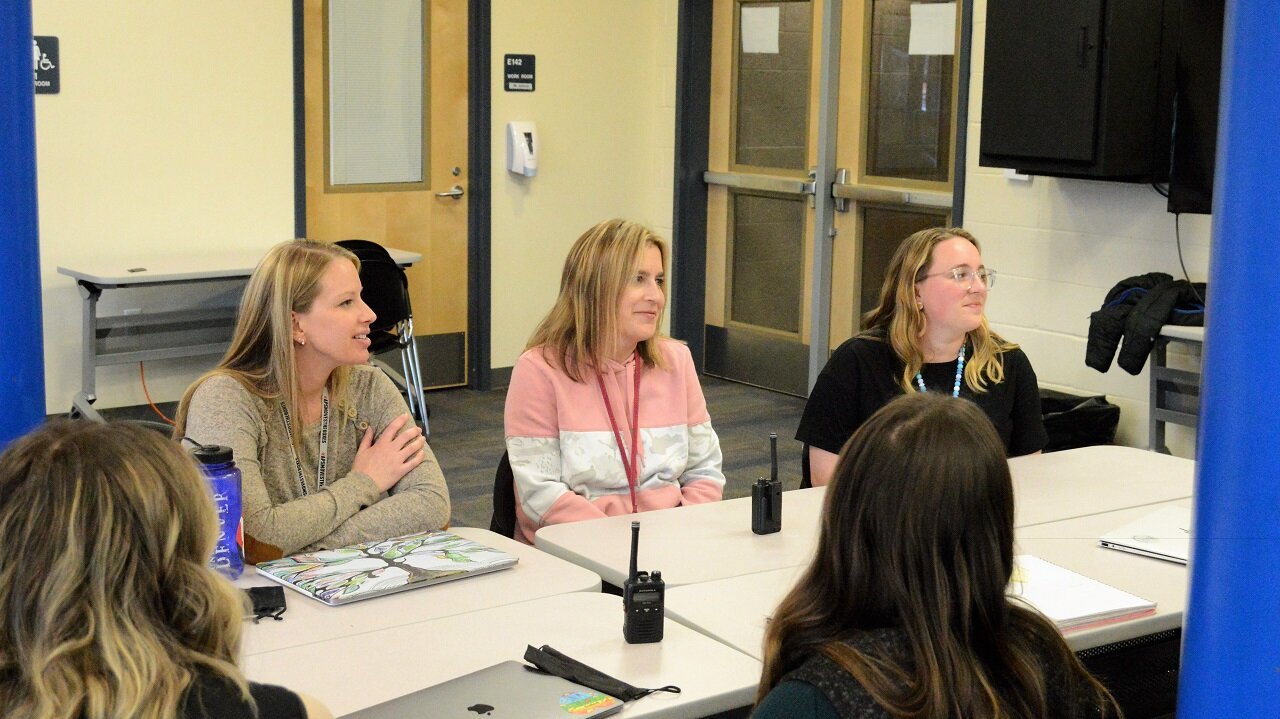
“I think we're definitely seeing that in our younger kids where I feel like a good majority of our concerns come from students bringing concerns about their friends and just saying, like, ‘I’m worried about my friend because they seem like they're hurting. Or like my friend told me this, I'm worried. Can you help?,’” explained Martens, the school’s social worker.
The counselors also said students can turn to a teacher, which they often do, for help or guidance of where to seek further support. For the counselors, that makes teachers that much more important to tackling this crisis.
“If we could get more teachers and reduce class sizes. So teachers know their students even better, our teachers do an amazing job … but there's just so many students in the classroom,” said Roberts, the sixth grade counselor.
Most of the Aurora Hills counselors supported that idea as well as adding more consultations or support for teachers since they said often the teachers are first ones to serve our kids.
The APS mental health and counseling coordinator, Kaspar added: “What I have learned through this pandemic is that we have not given the support and the time and the energy and the concern to the adults that we need to. And the focus is of course, always on our students. However, if we don't have regulated teachers in the classroom, we will never have regulated students in the classroom.”
Part of that regulation for staff and students could come in the form of a dedicated room in the building to decompress. Richardson, the seventh grade counselor, said if she had unlimited money to help the mental health of students at Aurora Hills she would love to have a “regulation room.” It would be a space for adults and children to take a break, use calming and refocusing strategies and tools and then return to the classroom.
“Whether you're a kid who calms down through, like, tactile, so having fidgets or something to hit or get some energy out. Or maybe a kid calms down … what's soothing for them is music, you know?” said Richardson.
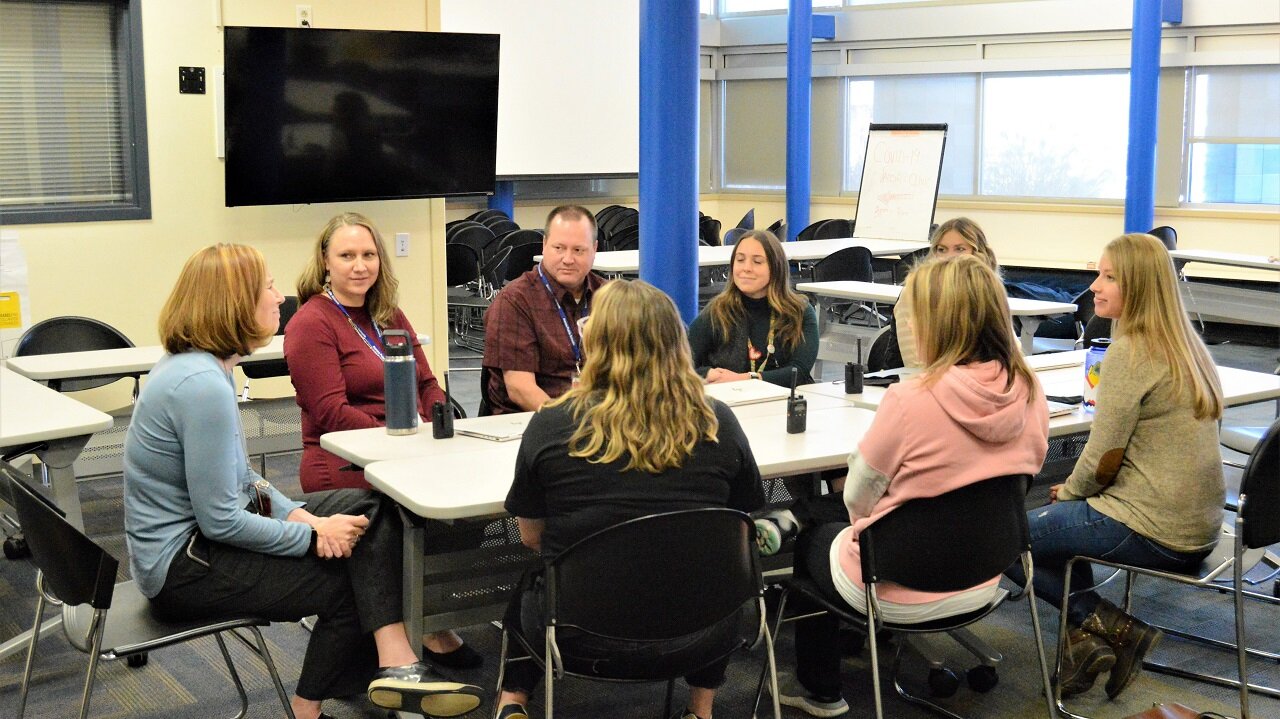
While that seems like a far-off goal at this point for Aurora Hills, this sort of idea is already in practice at a small elementary school on the Western Slope. The “Mindful Room” at Shelledy Elementary is staffed by the school’s behavioral interventionist and is a place for kids to reset. Filled with different tools, students can go to the room for as little or as much time as they need.
For now the partnership with Hazel Health is funded for one year to see how well it works and receive feedback from the kids and the community.
As we move forward in this pandemic, the mental health staff at Aurora Hills asked the community to think about the power of funding for mental health services. As for Ewing, she gives this advice to parents of teenagers:
“If your teen talks to you and they say that they want help, or that they're thinking about harming themselves or doing something to harm another person,” said Ewing. “[Maybe] their energy's low, maybe their eating has changed. Maybe it's more, maybe it's less. [If] their sleep patterns changed, if you notice that they're pulling away from their friends or they're in a group of friends that aren't, you know, the best influence, that type of thing. Like those are all signs that, you know, possibly your teen or that young person needs some extra support and some extra help.”
Resources:
If you have an immediate mental health crisis, please call Colorado Crisis Services at 1-844-493-8255 or text TALK to 38255.
Or call the National Suicide Prevention Lifeline at 1-800-273-8255. You can also chat with the Lifeline.
Articles and resources for parents:
Joy Ewing also provided this list of free or low-priced mental health care services:
- People House
- Regis Counseling Services
- Denver Family Institute
- University of Denver Professional Psychology Center
- CU Denver's Counseling Center
- Maria Droste
- University of Colorado, Denver
- DU Professional Psychology Clinic
- South Platte Counseling
- Open Path
- Khesed Wellness
- Denver Affordable Counseling
- Naropa University Counseling Center in Boulder
- The Sanctuary Church in Colorado Springs
- Servicios de La Raza
Amanda Horvath is a multimedia producer with Rocky Mountain PBS. You can reach her at amandahorvath@rmpbs.org.
